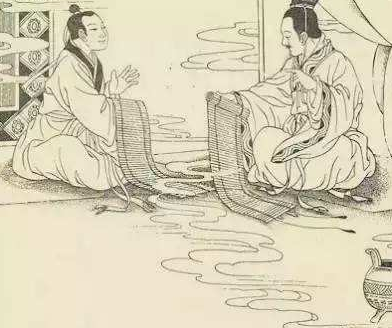Tsze-yu replied, "Formerly, Master, I heard you say,
子游对曰:“昔者偃也闻诸夫子曰:
'When the man of high station is well instructed, he loves men; when the man of low station is well instructed, he is easily ruled.'"
‘君子学道则爱人,小人学道则易使也。’”
The Master said, "My disciples, Yen's words are right. What I said was only in sport."
子曰:“二三子,偃之言是也!前言戏之耳。”
Kung-shan Fu-zao, when he was holding Pi, and in an attitude of rebellion, invited the Master to visit him, who was rather inclined to go.
公山弗扰以费畔,召,子欲往。
Tsze-lu was displeased. and said, "Indeed, you cannot go! Why must you think of going to see Kung-shan?"
子路不说,曰:“末之也已,何必公山氏之之也?”
The Master said, "Can it be without some reason that he has invited ME? If any one employ me, may I not make an eastern Chau!"
子曰:“夫召我者而岂徒哉?如有用我者,吾其为东周乎!”

Tsze-chang asked Confucius about perfect virtue. Confucius said,
子张问仁于孔子,孔子曰:
"To be able to practice five things everywhere under heaven constitutes perfect virtue." He begged to ask what they were, and was told,
“能行五者于天下为仁矣。”请问之,曰:
"Gravity, generosity of soul, sincerity, earnestness, and kindness. If you are grave, you will not be treated with disrespect,
“恭、宽、信、敏、惠。恭则不侮,
if you are generous, you will win all, if you are sincere, people will repose trust in you,
宽则得众,信则人任焉,
if you are earnest, you will accomplish much, if you are kind, this will enable you to employ the services of others."
敏则有功,惠则足以使人。”













